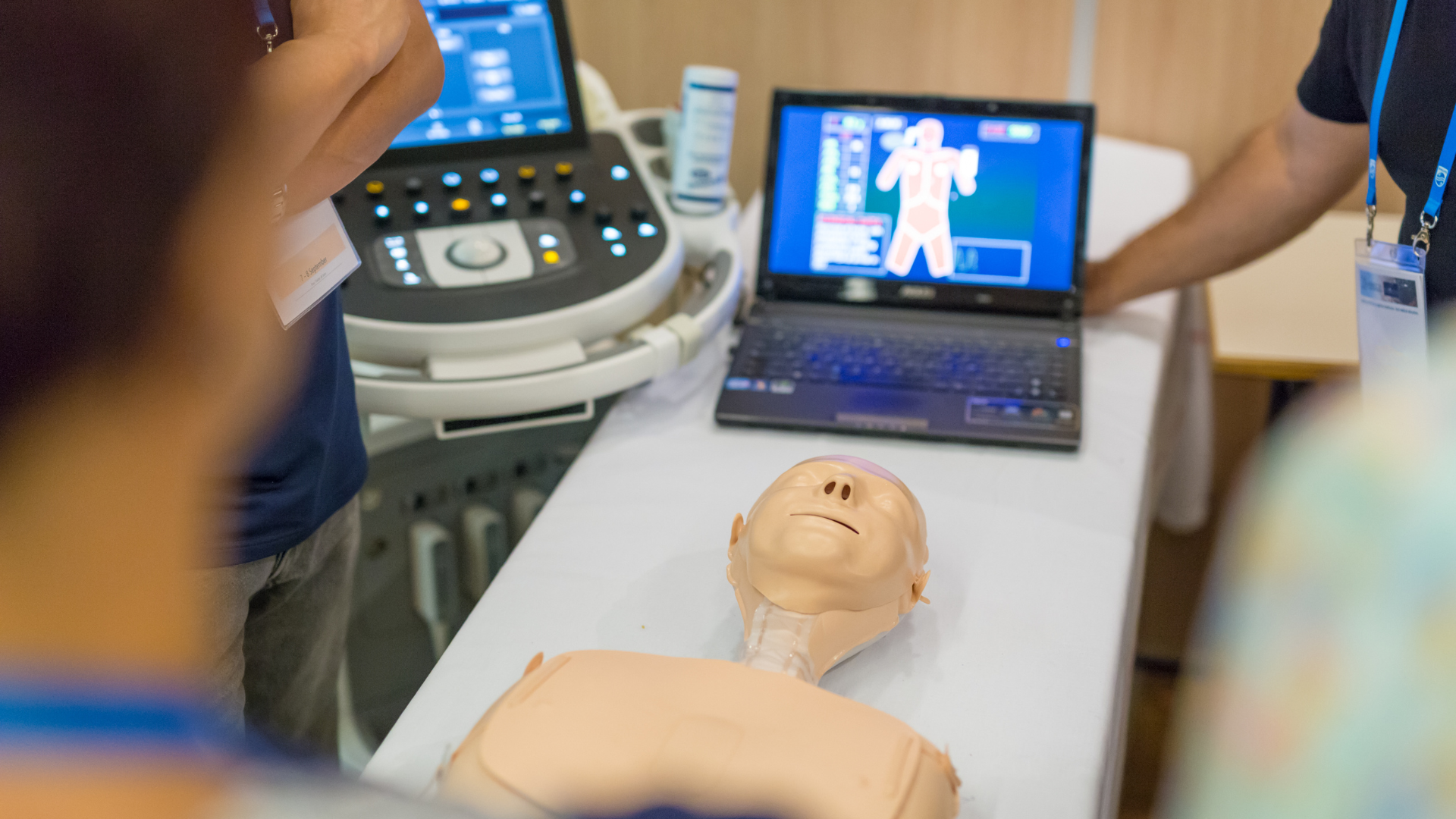Why Choose a Career in Healthcare Management?
Healthcare management is emerging as one of the most promising career pathways in today’s rapidly evolving medical ecosystem. Unlike clinical roles, it allows professionals to make a measurable difference in patient outcomes through leadership, strategic planning, and operational excellence. According to the U.S. Bureau of Labor Statistics, employment for medical and health services managers is expected to grow by nearly 29% between 2023 and 2033, far faster than the average for other industries.
The COVID-19 pandemic further emphasized the indispensable role of healthcare managers. From coordinating ICU beds and medical supplies to strengthening system resilience and policy implementation, their contributions directly shaped crisis response and patient safety. As healthcare continues to adopt digital innovations, telemedicine, and AI-driven solutions, the demand for skilled managers will only accelerate.
For ambitious professionals, this field offers stability, career growth, and the opportunity to lead meaningful change. With globally aligned programs like PromediExcel Learning’s Advanced Certificate in Healthcare and Hospital Management, students and working professionals can gain the expertise needed to step confidently into this high-impact sector.
Successful healthcare managers must have:
Leadership Skills – Strong leadership is critical in healthcare management, where decisions can directly affect patient outcomes and staff morale. Effective leaders set a clear vision, guide diverse teams of medical and administrative staff, and make tough calls under pressure. They foster a culture of accountability, motivate employees, and resolve conflicts constructively, ensuring that everyone works toward shared organizational goals.
Communication Skills – Healthcare managers must communicate clearly and empathetically with multiple stakeholders, including doctors, nurses, patients, families, policymakers, and vendors. This involves active listening, conveying complex information in plain language, and adapting communication styles to suit different audiences. Good communication also means facilitating collaboration across departments and ensuring policies, procedures, and goals are understood and followed.
Analytical Thinking – In a data-driven healthcare environment, managers must interpret performance metrics, patient feedback, and financial reports to make informed decisions. Analytical thinking enables them to identify inefficiencies, predict future challenges, and implement process improvements. Whether it’s reducing patient wait times, optimizing resource allocation, or improving compliance, strong analytical skills help managers find evidence-based solutions that enhance both efficiency and care quality.
Exhibit 1: Key Skills in Hospital & Healthcare Management
Who Should Consider Hospital and Healthcare Management as a Career?
Hospital and healthcare management is an excellent choice for individuals who want to blend business acumen with a genuine commitment to improving healthcare delivery. This field attracts people who are motivated by both strategic problem-solving and the desire to make a tangible difference in patient care.
It’s an ideal path for graduates in life sciences, business administration, public health, healthcare technology, or even engineering who are looking to move beyond purely technical or clinical roles into leadership and decision-making positions. Professionals from other industries—such as finance, operations, or IT—may also find healthcare management a rewarding career shift, especially if they are interested in applying their skills in a high-impact, purpose-driven environment.
Those who thrive in this field typically enjoy working in dynamic, multidisciplinary settings where they can lead teams, manage complex systems, and balance patient needs with operational efficiency. If you have strong leadership potential, an analytical mindset, and the ability to navigate regulatory and ethical considerations, healthcare management offers a career with long-term growth, stability, and meaningful societal impact.
Online Courses & Micro-Credentials
Online platforms make it easier to gain industry-relevant skills while working or studying. PromediExcel’s Advanced Certificate Programme in Healthcare and Hospital Management is accredited by CPD and designed to provide a comprehensive understanding of hospital operations, leadership strategies, and healthcare policies, all in a flexible, self-paced format.
Popular Certifications & Courses
PromediExcel’s Advanced Certificate Programme in Healthcare and Hospital Management
PromediExcel’s Advanced Certificate Programme in Healthcare and Hospital Management is designed to equip learners with the knowledge and skills required to excel in administrative and leadership roles within the healthcare sector. It provides a complete understanding of how healthcare systems function, from the foundations of patient care to the complexities of operational, financial, and strategic management.
The program blends healthcare-specific subjects such as clinical management, hospital functions, and patient safety with business-focused areas such as marketing, financial management, and project planning for healthcare infrastructure. Learners also gain a strong grounding in health informatics, digital health innovations, and the integration of IT systems, including AI, into hospital operations.
In addition, the course explores vital areas such as health education and communication, health insurance systems, and medical law and ethics, preparing professionals to navigate the regulatory, technological, and ethical dimensions of healthcare.
Through a combination of theory, practical case studies, and real-world applications, the program ensures participants graduate with a balanced skill set, capable of leading teams, improving efficiency, and driving positive patient outcomes in hospitals, clinics, and healthcare organizations.
Building Practical Experience
- Internships in Hospitals & Clinics: Work placements in hospitals and clinics provide firsthand exposure to healthcare operations, including patient admissions, scheduling, budgeting, and compliance procedures. These internships also offer opportunities to interact with multidisciplinary teams, understand workflow management, and learn how decisions impact both patient outcomes and operational efficiency.
- Volunteering & Entry-Level Roles: Starting in roles such as patient coordinator, medical records clerk, or administrative assistant helps build foundational skills in communication, data handling, and service delivery. Volunteering can also provide valuable networking opportunities, develop problem-solving abilities in real-world situations, and demonstrate commitment to a career in healthcare management.
Career Opportunities and Job Roles
Common Roles
- Hospital Administrator – Manages the day-to-day functioning of hospitals, including staffing, budgeting, compliance, and patient services.
Key Skills required: Leadership, financial management, decision-making, regulatory compliance knowledge, communication, and conflict resolution.
- Health Services Manager – Oversees specific departments such as cardiology, radiology, or outpatient services, ensuring efficiency and quality of care.
Key Skills required: Departmental planning, team coordination, problem-solving, strategic thinking, data analysis, and healthcare policy understanding.
- Operations Executive – Focuses on the logistics, supply chain management, equipment procurement, and facility maintenance that keep the hospital running smoothly.
Key Skills required: Supply chain management, vendor negotiation, time management, process optimization, attention to detail, and crisis management.
Conclusion
A career in healthcare management offers the perfect blend of leadership, problem-solving, and meaningful impact. With healthcare systems expanding and evolving, the demand for skilled managers is higher than ever.
By combining formal education, certifications such as PromediExcel’s Advanced Certificate Programme in Healthcare and Hospital Management, and hands-on experience, you can position yourself for success in this dynamic and rewarding field.
The journey begins with your first step, so why not take it today?
Stay tuned for the next insightful Blog on Tips to Kickstart Your Career





.png)

